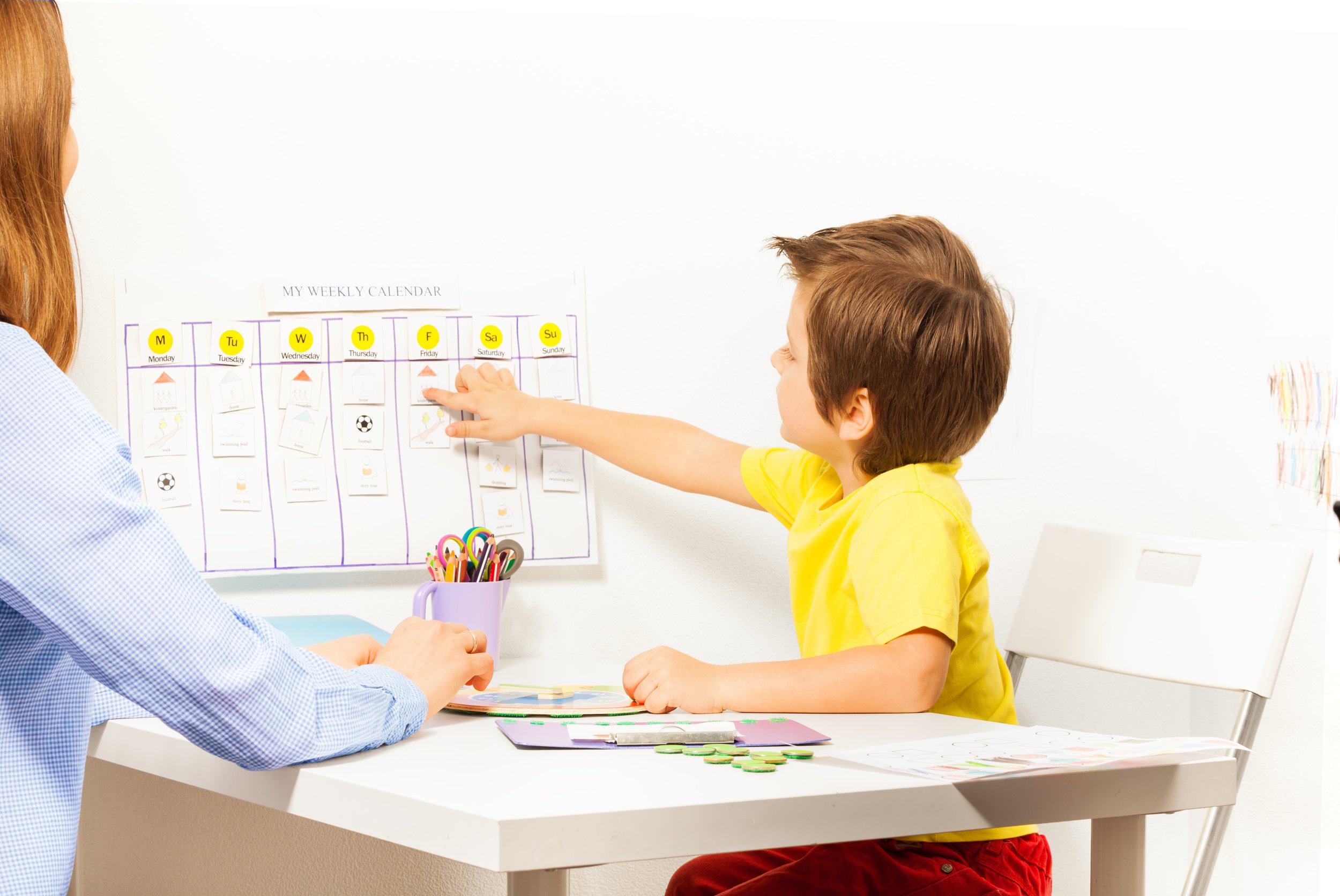Shift Happens: Making the Most of Big Changes in Your Homeschool Life
Navigating big changes in your homeschool life can seem like a scary prospect, but you’ve got all the tools you need to make your next big transition feel as exciting as it is stressful. Here’s what you need to know.
Like it or not, change is an inevitable part of life — and for most of us, it’s not always a welcome part. For every change that feels like a great new adventure, there’s a change that feels like an earthquake ripping through your peaceful everyday existence. Change is scary, but it’s also rich in possibility. “Making a big change can increase your sense of life's possibilities, and as you rise to new challenges, this can also increase your resilience,” says Rick Hanson, Ph.D., a psychologist and the author of Resilient: How to Grow an Unshakable Core of Calm, Strength, and Happiness. Every life transition — from your decision to homeschool to figuring out what to do when your homeschool days end — is an opportunity to open up new possibilities.
“Living through a big change teaches you about your own capabilities,” Rachna D. Jain, Psy.D., says. “You may learn that you're a lot stronger, smarter and more motivated than you thought.” That might not make facing a major transition less scary, but it does mean that if you tackle it the right way, change can end up feeling like the best thing that could have happened. In fact, says Jain, people who embrace a big change are happier five years down the road than people who stick to the status quo. The key is knowing how to navigate change.
"People think of change as something dangerous," says Auriela McCarthy, author of The Power of the Possible. "But it helps to remember all the ways your life has been altered in the past and realize that not only did you not keel over and die, things often turned out for the better." These major life transitions can shake up your homeschool life, but with the right tools and strategies, you can make these changes for the better, too.
“It’s tempting to fill up every moment with readalouds and park days, field trips and nature walks, but leave lots of room in your schedule to find your homeschool’s natural rhythm.”
SURVIVING THE FIRST WEEK OF HOMESCHOOLING
You’ve made the big decision, filled out all the paperwork, and now you’re officially a homeschool family. So — gulp! — what do you do now? Like any first day on the job, you’re equal parts excited and overwhelmed, ready to find your new routine and worried that you might not be up to the task ahead of you.
WHY IT’S SCARY: Taking responsibility for your child’s education is a big deal, and how ever much you’ve researched and prepared, you’re diving into the unknown when you start homeschooling. “The unknown freaks people out,” says Deborah Brown-Volkman, author of How to Feel Great at Work Every Day, Coach Yourself to a New Career. “You worry: Can I do this job? Will I be successful? Will this hurt my relationship with my child?”
HOW TO COPE
Build a support system. Do you have a mentor, group, or other resource you can count on to help guide you through these first few months? Even just having someone to say “I hear you” or “That sounds totally normal” can make the transition to homeschooling feel less stressful.
Think priorities, not plans. Like any new project, homeschooling comes with a steep learning curve. Your perfectly curated curriculum and meticulous schedules may not, after all, be the right fit for your homeschool, so don’t spend too much time or money on either for the first few months. Instead, turn your attention to the big picture goals for your homeschool, and let these goals guide your early decision making. For instance, if your goal is getting your child excited about learning, a traditional curriculum might not be the best place to start.
Be flexible. The less money you spend in these early days, the easier it will be to make big shifts — and you’re probably going to make significant changes as you settle into a routine and familiarize yourself with how your student learns best.
Leave lots of gaps. It’s tempting to fill up every moment with readalouds and park days, field trips and nature walks, but leave lots of room in your schedule to find your homeschool’s natural rhythm. These gaps also give kids time to explore their own interests, develop hobbies, and — yes! — be bored.
Know what a positive result looks like for you. Set a short-term outcome goal that you can keep your eye on — it might be something specific, like working toward passing an end-of-term exam, or something more qualitative, like creating a happy home learning environment. Having a goal will help you track your progress, which can boost your confidence as you begin homeschooling.
ON THE PLUS SIDE: Copenhagen’s Happiness Research Institute found that a sense of purpose in your work is the number-one indicator for job satisfaction — and what’s more purpose-inspiring than your child’s education? Making the switch to homeschooling may be a big change, but it’s a change that may ultimately increase your overall life satisfaction.
“Try a little of everything in small portions. It’s the life equivalent of ‘Don’t fill up on bread.’”
MAKING A MOVE
Moving across town or across the country is a big adventure, but it can be a stressful one, too. If you’re homeschooling, the transition can be trickier since you don’t have the Insta-Community school offers as safety net — you’re on your own, and that can feel really intimidating.
WHY IT’S SCARY: "We don't realize just how much of our identity is tied up in where we live," says Cathy Goodwin, Ph.D., and author of Making the Big Move. You’re not just adjusting to a new house and finding a new favorite park, you’ve got to rebuild your entire community, from your doctor’s office to your supermarket. And for homeschoolers, who have usually worked pretty hard to develop a community, the prospect of starting over from scratch can be especially intimidating. “It took us three years to build our homeschool community, and as soon as we felt settled, my husband’s job transferred him across the country,” says Jenna*, who homeschools her 2e son Jonas in Wisconsin. “We had worked so hard, and it isn’t an exaggeration to say that the prospect of moving felt like our world was falling apart.”
HOW TO COPE
Give everyone a period of adjustment. Giving everyone a little prep time can make a big move seem less scary. Once she adjusted to the idea of a move, Jenna hopped on Facebook, reaching out to everyone she knew to find a homeschool community in her new town. To her surprise, “people were incredibly kind and generous about sharing resources,” she says. She and Jonas also researched comic book stores and robotics teams (two things Jonas was especially upset to leave), and found that their new community had great options for both of these things. By the time they took their official house-hunting trip, the Holcombs were able to drop in on a potential robotics class, visit a co-op with a cool science program, and join a homeschool park day. “It started to feel exciting — not just scary,” Jenna says.
Stick to familiar routines. One of the most effective ways to make a new place feel like home is to bring the rhythms that feel like home with you. “Keeping up rituals like family meals or game night can build a sense of consistency that's reassuring,” says Katie Novick, a therapist in Brookline, Massachusetts. Sure, you may not be able to replicate your exact schedule, but keeping your morning routine the same and sticking to your Saturday family pizza-and-a-movie night can make a big difference in helping you feel grounded in a new place.
Don’t make big commitments fast. It’s tempting to plunge right into joining a new homeschool group and signing up for All The Classes to get into the swing of a new place, but you’ll be happier in the long run if you leave plenty of space for your new life to develop around you. “Try a little of everything in small portions,” recommends Novick. “It’s the life equivalent of ‘Don’t fill up on bread.’”
Keep an open mind — and keep trying. On the other hand, building a community takes work and time, so you’re going to have to put yourself out there and try things, knowing that some of them won’t be a good fit. This can be hard when you’re still recovering from the chaos of a move, so take breaks when you need to — but don’t stop. People who made forging new relationships and networks a priority were happier two years into their move than people who took a wait-and-see approach, found researchers in a small Danish study.
ON THE PLUS SIDE: Change leads to more change, says B.J. Fogg, Ph.D., a behavior scientist and founder of the Behavior Design Lab at Stanford University. "When you make a big adjustment, you also tend to switch up your environment, your schedule, and your social circle. That then ensures that you keep evolving and advancing.”
“Of course you want to make this transition as smooth as you can for your children, but don’t neglect yourself in the process. ”
GETTING THROUGH A DIVORCE
Even the best, most mature break-ups are hard to get through, and when you’re navigating the end of a marriage that includes other people — your kids — it can be especially hard. And if you’re homeschooling, navigating a new financial and family situation can be even more challenging. “Roughly half of all marriages end in divorce, and divorce doesn’t hurt children — it’s the way parents get divorced and the amount of conflict between them that hurts children,” says counselor and mediator David Kuroda.
WHY IT’S SCARY: Divorce means big changes — divesting all the parts of your shared life and building a new, independent life on your own. This often means big financial shifts, often including moving house and new budgets, and it always means big emotional shifts. Even though divorce is common enough in the 21st century, many people still feel that it means they’ve failed in some important project when their marriage doesn’t work.
HOW TO COPE
Get the help you need. Of course you want to make this transition as smooth as you can for your children, but don’t neglect yourself in the process. “Divorce can be an emotionally charged experience, even if you part on good terms, and parents need space to deal with the end of a relationship,” says Kuroda. If you ignore your own feelings, they’re likely to come out in ways that ultimately make a divorce harder for everyone.
Get on the same page. If one parent wants to homeschool but the other one has strong feelings about other education options, things can get complicated. “When we're married, we work hard to minimize our differences — we're more willing to negotiate and compromise on questions of family and child rearing,” says M. Gary Neuman, author of Helping Your Kids Cope with Divorce the Sandcastles Way. Ideally, kids will stick with the same academic routine they had pre-divorce, says Kuroda, so this isn’t a great time to make the transition back to school or to pull them out to start homeschooling. If homeschooling is a point of contention, it may help to bring in a mediator who can help you pin down objective metrics for your homeschool. Heidi Kessler’s partner insisted on annual testing to make sure their children didn’t slip off the grid, and while she initially resisted, the testing turned out to be a low-hassle way to keep her partner’s support. “We could have fought it out, but nobody would have won in that situation,” Heidi says. “In the end, we both wanted our kids to have a good educational experience, and we were able to find a way that made us both feel okay.”
Keep kids out of the middle. This can be tough if you and your ex are disagreeing about details, but it’s important that your kids don’t feel like they have to choose sides. A parenting plan can really help with this, spelling out how your kids will spend time, what your financial obligations to each other are (including college), and establishing a new family routine. It can be especially hard on kids if one parent doesn’t follow through on planned time together or commitments, so make your own follow-through a priority and try to minimize the impact of let-downs if your partner is the one missing commitments.
ON THE PLUS SIDE: Eighty percent of kids said that their parents’ divorce had been a good thing and that their own lives improved post-divorce in a 2004 study of adult children of divorced parents led by Constance Ahrons, psychologist and author of the book We’re Still Family: What Grown Children Have to Say About Their Parents’ Divorce.
“You do not have to have a long-range plan right now. What you need is a way to get through today.”
COPING WITH A HEALTH CRISIS
When Laura’s* husband was diagnosed with cancer just two weeks after her daughter was hospitalized for depression, she thought she would collapse. Laura was homeschooling three children, including her daughter, and her husband was the primary breadwinner. Suddenly, Laura found her time consumed by caretaking.
WHY IT’S SCARY: Coping with a health crisis can be incredibly hard. “We all live in some degree of terror of bad things happening to us," says Barbara M. Sourkes, associate professor of pediatrics at the Stanford University School of Medicine. “Families say over and over, ‘It’s such a lonely time and I don’t have the energy to educate my friends and family, yet they don’t have a clue.’ ”
HOW TO COPE
Give yourself time to grieve. “We can't move on until we honor what's gone,” says Joan Borysenko, Ph.D. and author of Saying Yes to Change. “You can't jump past the fact that you've lost your sense of invincibility.” If you try to bottle up all your feelings, they’ll be waiting for you down the road — when they may be much harder to deal with.
Be specific about what will help. People often want to help families going through a health crisis, but they don’t know what they can do — so tell them, recommends Sandy Clancy, PhD, co-chair of the Family Advisory Council. Make a list of specific things that would be helpful — dropping a child off at soccer practice or co-op, dinner after Wednesday chemo, someone to watch the kids so you can nap on Saturday afternoon — and hand it off to a few friends who can spread the word. “This feels weird and presumptuous, but people who care about you are glad to find a way to help.”
Take short-term fixes. You do not have to have a long-range plan right now, says Clancy. What you need is a way to get through today. This might mean putting homeschooling on hold — that might mean relaxing your homeschool, outsourcing more learning, taking a long break, or even sending your kids back to school. “If you go in knowing you’re looking at a short-term fix, you tend to be much more open to possibilities,” Clancy says.
Seek family services. Most hospitals can hook you with support groups, whether you’re dealing with a mental health crisis in your teen or a health diagnosis of your own, and these can be great resources to help you navigate this kind of crisis. “My friends cared, they wanted to understand, but they couldn’t really know what I was going through,” says Laura. “In the support group, every single person was going through the exact same thing.”
Give yourself grace. This should probably be a universal mantra for homeschool parents, but it’s especially important when you’re dealing with a heath crisis, says Clancy. You’re going to forget things, sometimes even important things, and you’re not going to do everything perfectly. Let yourself appreciate that you’re doing your best.
ON THE PLUS SIDE: “Going through tough times together can bring your family closer together,” says Clancy.
“Homeschooling is a one-of-a-kind experience, and it deserves a joyful send-off.”
GOING BACK TO SCHOOL
Marnie* thought that after six years of homeschooling her son Joey she was ready for anything, but she was shocked when the summer before 9th grade, Joey started talking about going back to public school. His neighborhood friends were all going, and he loved the idea of being part of the high school’s big, active theater group. “When we pulled him out of school in elementary, I guess I thought we’d homeschool until he went to college,” says Marnie. “But it turns out that’s not what Joey wanted.”
WHY IT’S SCARY: We’ve all heard the stories about homework overload and mean kids — not to mention active shooter drills — at school, and it’s hard to voluntarily pull our kids from the relative security of homeschool to face those challenges. It can also feel like a judgment on our homeschooling success: Have I prepared my student to survive in a “real” school? Does he want to go back to school because I’ve been a crummy homeschool parent?
HOW TO COPE
Do your research. Public schools are all over the place with how willing they are to accept homeschool work for credits, and it can vary not just by district but by individual school. Your best bet is to meet with the school’s guidance counselor to find out what — if any — credits they will transfer and how they’ll place your student in classes. “My daughter wanted to go back to high school to play soccer her senior year, but the school wouldn’t accept any of her homeschool credits — even though we’d taken many of those credits at an accredited hybrid school,” says Miriam*. “She would have had to start over with 9th grade, which made going back a non-starter.”
Practice school skills. Homeschoolers are often well equipped for the academics of traditional school, but they may need to practice school specific skills, like taking notes, opening lockers, taking timed tests, maintaining learning stamina for several hours at a time, or changing classes.
Plan some great memories. Homeschooling is a one-of-a-kind experience, and it deserves a joyful send-off. “Joey and I made a list of all the things we wouldn’t be able to do when he was back in school — afternoon movie marathons, spontaneous camping trips to the mountains, Tuesday mornings at the science museum — and we filled up our summer calendar with all those things,” says Marnie. “I thought it would be sad, but it was actually a really joyful summer of remembering all the good times we’d had homeschooling.”
Set up a support system. The first weeks of the school routine can be a challenge, and kids may need a lot of structure to support them. Set up a designated homework zone, create a morning and evening routine to facilitate early wake-ups, and make sure your weekends have plenty of downtown. “It was a huge transition, and there were some definite bumps in the beginning, but he absolutely made the right decision,” says Marnie.
“You can be proud of your child’s accomplishments, excited for her new adventure, and still mourn the loss of your homeschool days.”
REGROUPING AFTER GRADUATION
Homeschooling can be an all-consuming experience, and achieving its ultimate end — launching your child on her post-high school adventure — puts you right out of a job. “I’d been devoting all my energy and free time to homeschooling for eight years, and suddenly it was just done,” says Tamara*, whose daughter graduated from high school two years ago. “I was surprised by how lost I felt.”
WHY IT’S SCARY: The relationship you had with your child and your role as her parent are never going to be the same — everything is different now, says Natalie Caine, the founder of Empty Nest Support Services. If parenting has been a huge part of your life, this can be a tough transition.
HOW TO COPE
Accept your feelings. It’s OK to be sad! You can be proud of your child’s accomplishments, excited for her new adventure, and still mourn the loss of your homeschool days. Equally, it’s OK if you’re delighted with the prospect of your newfound free time — celebrating space for yourself doesn’t mean that you don’t love your child or you didn’t love homeschooling. And it’s OK to feel both ways, depending on the moment.
Follow your teen’s communication lead. Some kids thrive on daily texts and phone calls; others want a little more space to navigate their new terrain. “I was so used to being part of my daughter’s everyday life — I wasn’t ready for her to go two or three days without calling, but that was what she needed to adjust to campus life,” says Tamara. “It took some emotional recalibration, but we’re as close as ever even though we may not talk every single day.”
Make plans together … Especially if your child is moving out into a dorm or place of their own, put family time on your calendar — a family fall break road trip or Thanksgiving getaway will give all you something to look forward to.
And separately. With a big chunk of time opening up, a long-term goal will give you something to focus on and work toward, says Jeffrey Arnett, a developmental psychologist and the author of the book Getting to 30. This helps reorient your internal to-do list so that it’s focused on something for you, whether that’s running a marathon, taking college classes, or volunteering with a political campaign.
ON THE PLUS SIDE: A 2013 study at Clark University found that while 84 percent of parents missed their flown-the-nest kids, 90 percent of them were happy with the children’s growing independence and 60 percent were happy to find more time for their own lives one year later.
*last names removed for online publication
This was originally published in the summer 2019 issue of HSL.







































If you’ve got the opportunity to make a big change but aren’t sure the time is right, ask yourself these questions:
[ ] Are you notably more irritable, depressed, or angry?
These are all signs that something’s gotta give — and a big change may be just what you need. These feelings can build up over time so gradually that you don’t even notice them, so do a real self-evaluation or ask a good friend to weigh in.
[ ] Are you procrastinating and daydreaming more than usual?
These are signs that the real world isn’t giving you what you want. Lots of people use daydreams to test-drive life changes, so spending lots of time imagining a different life is a clue that you’re ready for a change, says Rachna D. Jain, a Maryland psychologist and life coach.
[ ] Do you feel vaguely dissatisfied all the time?
It’s not that things are bad, exactly — it’s just that they never feel great. Simple nagging dissatisfaction or vague restlessness are both signs that something’s missing, says Jain.
[ ] Do you have a dream you’ve never followed up on?
Why not? According to Jain, an unfulfilled dream or major life goal is a sure sign you need to think about making a big change. “Dreams don’t go away,” says Jain. “You can put them off indefinitely, but they’re always there.”